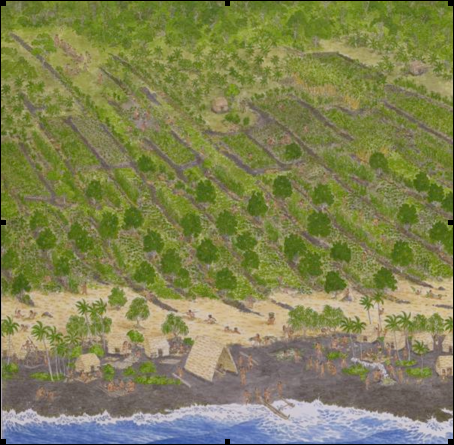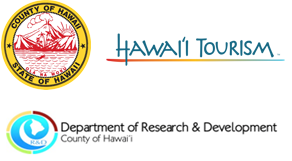Ethnoecology and Hawaiian agriculture presentation at Lyman Museum

Artwork by Arthur Kodani, by permission of the Amy B.H. Greenwell Ethnobotanical Garden
HILO, Hawai`i (March 25, 2013) — On Monday, April 1 at the Lyman Museum, Stanford University doctoral candidate (and

Stanford University doctoral candidate (and kama`āina) Noa Kekuewa Lincoln
kama`āina) Noa Kekuewa Lincoln will delve into traditional Hawaiian wisdom about food plants and the environment.
The ancient Hawaiians’ interaction with their environment, which differed considerably from the smaller and older islands elsewhere in the Pacific, produced intensive agricultural systems. It is believed that these systems sustained a pre-contact population on the Big Island similar to current numbers; yet today, many Hawaiians eat imported food, and much of what is grown locally is treated with chemical fertilizers.
At his Lyman Museum presentation, Lincoln will describe how, using modern science, he tests the impact small choices have on the agricultural landscape. He will also explain which traditional Hawaiian practices could be employed for the productivity and sustainability of modern agricultural systems.
The Smithsonian-affiliated Lyman Museum at 276 Haili Street in Hilo showcases the natural and cultural history of Hawai`i. Doors open at 6:30 p.m. for evening public programs. Cost is $3; free to Lyman Museum members. Additional parking is available at Hilo Union School. For more information, visit www.lymanmuseum.org.




